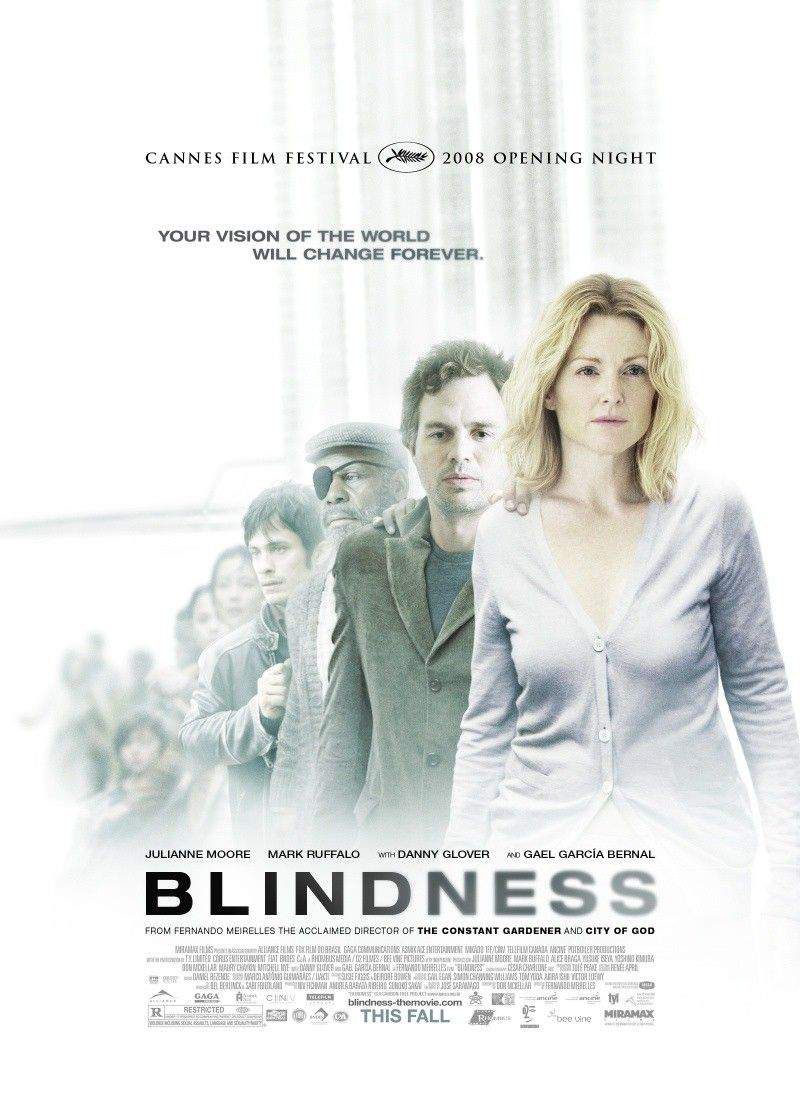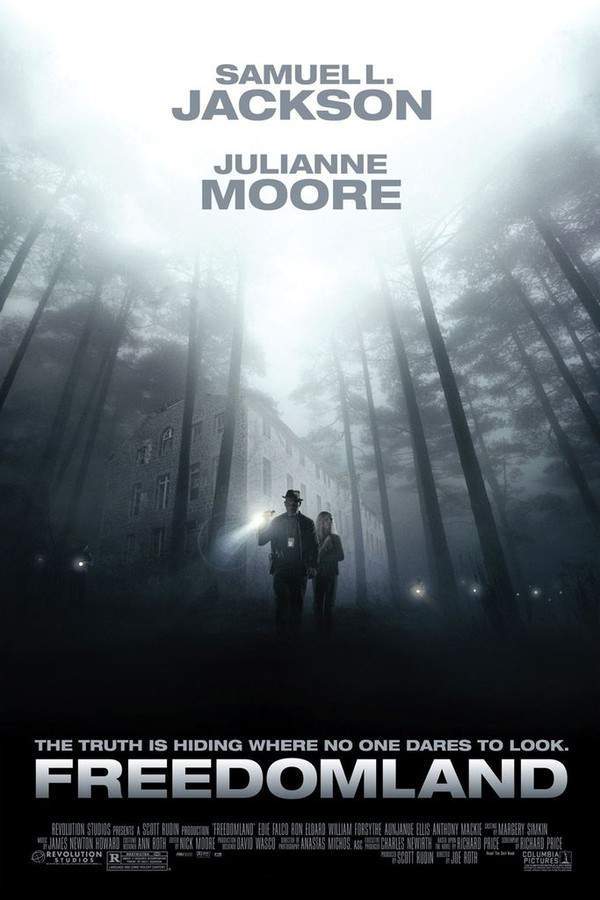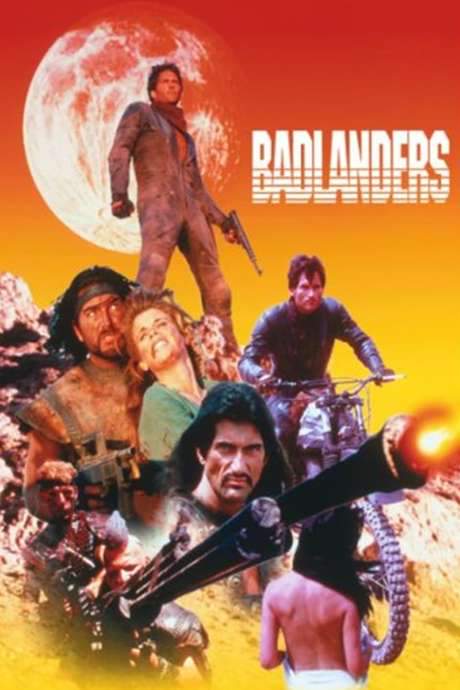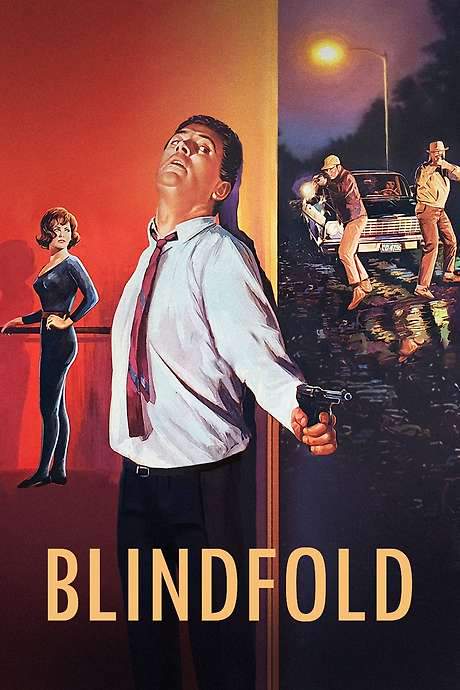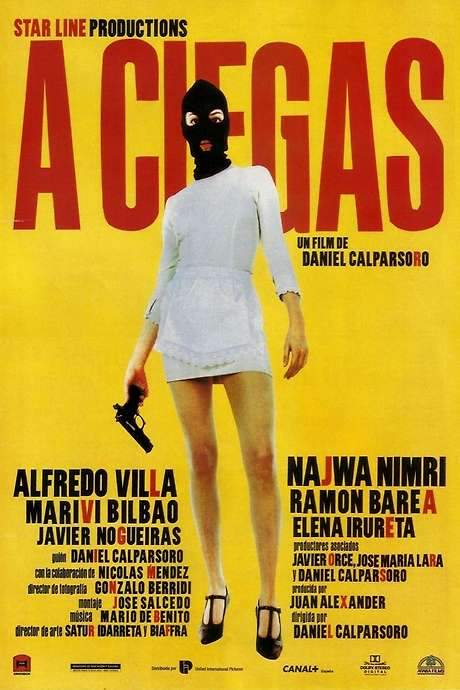Land of the Blind 2006
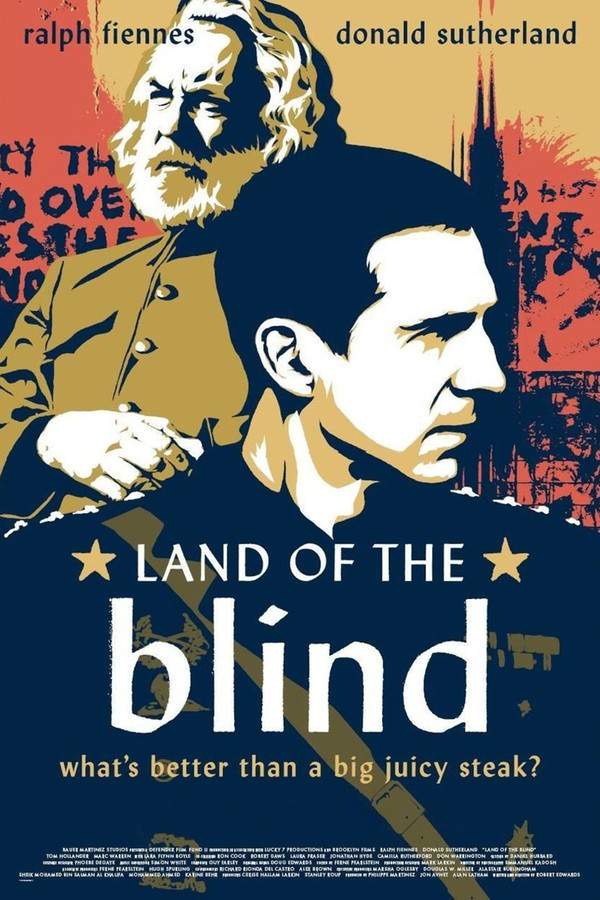
In a dystopian future where personal freedoms are nonexistent, security guard Joe finds himself drawn into a dangerous plot. He joins forces with Thorne, a compelling and radical terrorist, to challenge the oppressive rule of the ruthless Maximilian II. Their rebellion sparks a chain of events with far-reaching and destructive repercussions, forcing them to confront the true cost of fighting for what they believe in.
Does Land of the Blind have end credit scenes?
No!
Land of the Blind does not have end credit scenes. You can leave when the credits roll.
Meet the Full Cast and Actors of Land of the Blind
Explore the complete cast of Land of the Blind, including both lead and supporting actors. Learn who plays each character, discover their past roles and achievements, and find out what makes this ensemble cast stand out in the world of film and television.
No actors found
External Links and Streaming Options
Discover where to watch Land of the Blind online, including streaming platforms, rental options, and official sources. Compare reviews, ratings, and in-depth movie information across sites like IMDb, TMDb, Wikipedia or Rotten Tomatoes.
Ratings and Reviews for Land of the Blind
See how Land of the Blind is rated across major platforms like IMDb, Metacritic, and TMDb. Compare audience scores and critic reviews to understand where Land of the Blind stands among top-rated movies in its genre.

32
Metascore
7.1
User Score


17%
TOMATOMETER

63%
User Score

6.4 /10
IMDb Rating

58
%
User Score
Take the Ultimate Land of the Blind Movie Quiz
Challenge your knowledge of Land of the Blind with this fun and interactive movie quiz. Test yourself on key plot points, iconic characters, hidden details, and memorable moments to see how well you really know the film.
Land of the Blind Quiz: Test your knowledge on the political intrigue and personal struggles depicted in 'Land of the Blind.'
Who is the main antagonist in 'Land of the Blind'?
Maximilian II
John Thorne
Joe
Josephine
Show hint
Full Plot Summary and Ending Explained for Land of the Blind
Read the complete plot summary of Land of the Blind, including all major events, twists, and the full ending explained in detail. Explore key characters, themes, hidden meanings, and everything you need to understand the story from beginning to end.
Maximilian II, infamously known as Junior, holds an iron grip over a nation rife with chaos and uncertainty. This self-centered and vengeful monarch harbors two main obsessions: indulging in his personal extravagances and meticulously controlling his country’s film industry, which churns out a seemingly nonsensical array of mediocre action-adventure titles, such as Out For Vengeance 4. It’s heavily suggested that Junior’s unabashed indulgences are amplified by the influence of his striking yet merciless wife, Josephine, alongside the violence instigated by anti-government terrorists.
Enter Joe, a seasoned prison warder laboring in the grim facility where John Thorne is initially held. Throughout this time, Thorne endures the harsh deprivations of his environment, suffering relentless beatings from guards while scratching revolutionary messages on the cell walls using his own refuse. As Joe begins to understand Thorne’s tenacious spirit and keen intellect, he finds himself developing an admiration for the man, despite being at odds with his radical beliefs. Acknowledging the growing dissent among the populace, Maximilian makes a bold move by freeing Thorne from his cell, intending to reshape him into a selfish politician rather than a revered hero.
As fate would have it, Joe’s own ambitions lead him to ascend to the inner circle of guards in Maximilian’s opulent palace, along with a coveted position in the elite military ranks. Witnessing Junior’s depraved instincts up close, Joe clandestinely enables Thorne and his followers to infiltrate the heart of the palace while Junior and Josephine engage in their disgraceful revelries. In a swift and brutal act, Thorne eliminates the pair, seizing power and reigning over the nation with an iron fist, echoing the tyranny of his predecessor.
Under Thorne’s new totalitarian regime, Joe finds himself complicit in the merciless quelling of dissent. Yet, as the realization dawns that his former ally has transformed into a tyrant as oppressive as Junior, Joe stands resolute in his refusal to accept the new order. This act of defiance results in his forced transfer to a re-education camp, where he must confront the harsh truths of his reality and the grim consequences of his prior complicity.
As the unending torment persists, Joe’s determination remains unbroken—he steadfastly refuses to sign a loyalty oath that would seal his fate. A haunting visitation from Thorne serves only as a cruel reminder of their past camaraderie, as Joe’s earnest attempts to reconnect are met with chilling indifference. Compounding the misery is a barrage of vicious gossip circulating through the facility, peddling insidious rumors of a secret conspiracy brewing among the prisoners. A once-friend, now reduced to a shell of his former self, spews a tide of baseless accusations designed to undermine Joe’s reputation and integrity.
With interrogators intensifying their probing questions, Joe finds himself spiraling through a disorienting maze of blurred realities and fragmented memories. It is within this surreal vortex that a shocking realization emerges: Joe’s entire persona as a valorous hero or fearsome commando has been nothing but an elaborate deception. In truth, he was a mere soldier who had completed a standard two-year tour of duty.
As Joe’s grasp on reality begins to fracture, his tormentors assume the guise of specters from their shared past, mocking him with bemusing riddles and infuriating contradictions. A haunting refrain, > “What is better than a big juicy steak?” – reverberates through the air, with its punny answer reinforcing the grave dangers of moral obligation. Throughout this tumultuous sequence, it remains ambiguous whether Joe’s replies stem from the depths of mental torment or the nonsensical outpourings of a paranoid mind. One indisputable truth emerges, however: his profound silence serves as a resounding testament to the unyielding nature of human resolve amidst heart-wrenching cruelty.
As the waters of Thorne’s bath become tinted with the blood of betrayal, one of his once-trusted allies delivers the fatal strike. The revolutionary government collapses swiftly, its foundations rocked by deceit. In the shadows, Junior’s relatives and nephew—who had previously fled the turmoil—quietly resurface, having spent their exile orchestrating a counter-revolutionary coup with foreign assistance. The former commander of the camp sheds his tattered fatigues for a pristine white coat, absolving himself of any accountability for the atrocities committed under his supervision. A tortured colleague, who once accused Joe of conspiracy, is rewarded with a government position, his assurances to negotiate Joe’s release tempered by the sensitivities surrounding Maximilian’s assassination, a deed he claims to have orchestrated. For toppling the old regime while resisting the new tyrant, Joe finds himself ensnared in a prison cell, a perpetual victim of circumstance.
Years tick by, shifting like grains in an hourglass, until Joe is discovered in a stark white cell, remaining almost oblivious to his daughter’s sporadic visits. It remains uncertain whether he has succumbed to madness or maintains lucidity, his apparent detachment possibly a strategic façade to cope with the crushing weight of his situation. Alternatively, this visitor may merely be an actress playing the role of his daughter, crafted to shatter any remaining fragments of his tenuous grasp on reality. As she departs, revealing the cell as a shabby apartment within a dilapidated complex, the truth dawns: Joe’s imprisonment is not a byproduct of political oppression, but rather a calculated maneuver by a regime intent on maintaining dominion over him.
Uncover the Details: Timeline, Characters, Themes, and Beyond!

Coming soon on iOS and Android
The Plot Explained Mobile App
From blockbusters to hidden gems — dive into movie stories anytime, anywhere. Save your favorites, discover plots faster, and never miss a twist again.
Sign up to be the first to know when we launch. Your email stays private — always.
Watch Trailers, Clips & Behind-the-Scenes for Land of the Blind
Watch official trailers, exclusive clips, cast interviews, and behind-the-scenes footage from Land of the Blind. Dive deeper into the making of the film, its standout moments, and key production insights.
Land of the Blind Themes and Keywords
Discover the central themes, ideas, and keywords that define the movie’s story, tone, and message. Analyze the film’s deeper meanings, genre influences, and recurring concepts.
Land of the Blind Other Names and Titles
Explore the various alternative titles, translations, and other names used for Land of the Blind across different regions and languages. Understand how the film is marketed and recognized worldwide.
Similar Movies To Land of the Blind You Should Know About
Browse a curated list of movies similar in genre, tone, characters, or story structure. Discover new titles like the one you're watching, perfect for fans of related plots, vibes, or cinematic styles.
Quick Links: Summary, Cast, Ratings, More

What's After the Movie?
Not sure whether to stay after the credits? Find out!
Explore Our Movie Platform
New Movie Releases (2026)
Famous Movie Actors
Top Film Production Studios
Movie Plot Summaries & Endings
Major Movie Awards & Winners
Best Concert Films & Music Documentaries
Movie Collections and Curated Lists
© 2026 What's After the Movie. All rights reserved.















